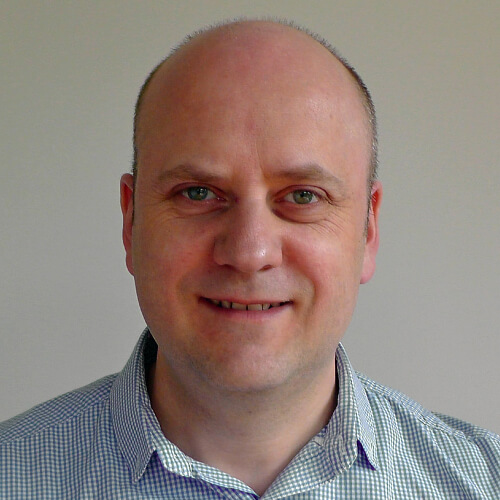Great Teachers All Have This One Thing in Common

There’s no single blueprint for a truly great teacher, says Harley Richardson – but they all have one thing in common…

What defines a good teacher?
Is it their ability to deliver engaging lessons?
Maybe it’s their talent for coaxing great work out of pupils of all abilities, or their track record for delivering the exam results expected by senior staff and parents.
My own favourite teacher had none of those attributes. He taught A-Level politics at the West London comprehensive I attended in the mid-1980s and was like no other teacher I’ve encountered.
Let’s call him Mr Bird.
Mr Bird was a gruff and stern man who had taught at the school for many years and had a certain military bearing about him.
He addressed us by our surnames as if we were wet-behind-the-ears army recruits (“Richardson!”), a habit which was an anachronism even back in the ‘80s.
With his dark trimmed beard and his way of arching one eyebrow superciliously whenever something we did amused him, he would have made a convincing Hammer horror villain.
He certainly scared the bejeebers out of the younger children in the school, who did not look forward to encountering him in his role as Head of Upper 6th.
His politics lessons broke every rule of pedagogy. He made no effort whatsoever to shape the dry and complex material about constitutions, Star Chambers, the American electoral system and the pros and cons of proportional representation in order to make it more fun or interesting.
He just dictated at length from notes – years before the arrival of scripted teaching – and we were expected to transcribe them verbatim.
I think the idea was that, as self-motivated sixth formers, we would study them in our own time. We didn’t.
In the end he ran out of time to cover everything, and handed us photocopies of the remaining material a couple of weeks before the final exams, which just added to the pile of notes we weren’t going to read.
Unsurprisingly the entire class did badly in our exams (I got a D). He had also set us no coursework at all during the two years, meaning I for one went to university not knowing how to write an essay (my other A-Levels having been maths and art).
Life changing
By every objective measure his lessons were a failure. Yet they changed my life and inspired me with a lifelong interest in politics and history, for which I am eternally grateful.
The magic ingredient was the way he would pause, when the mood took him, to probe us on what we thought about the topic at hand.
These led to some tough exchanges, in which he challenged every notion we had, making no allowance for youthful ignorance or sensitivities and taking particular delight in dismantling our more politically correct views.
Call me a masochist but I found this invigorating: it made me question every naive idea I had about how the world worked and introduced me to entirely different ways of looking at political questions I thought I had a handle on.
In the end it made my understanding of politics much stronger. And it did what teaching is supposed to do: it opened up my world.
Because he challenged every point of view, we never could figure out what his own political views were.
His slightly sadistic personality fit the uncharitable stereotype we had of a right-winger, but we later found out he was a trade union organiser.
Such relentless neutrality is something that teachers who organise classroom debates would do well to emulate. His lessons were a masterclass in how to foster creative thinking.
Mr Bird’s contempt for the level of effort we put into our actual studies was usually expressed in cutting put downs. Occasionally, though, his exasperation provoked him into going off on a wild tangent.
He was known to dedicate entire periods to describing, in extensive detail, how to start an antique crankshaft car or how to load and fire a World War 2 Sten gun – “just in case we ever needed to know”. I don’t believe he thought we would ever need to know.
Most likely he was checking if we were paying attention or whether any of us would have the guts to ask the question we should have asked, namely, “What has this got to do with politics, sir?”
There was a limit to how far he would humour us. I remember when, a year-and-a-half into the course, he asked us to name any 19th-century prime ministers and we could come up with none.
The dressing down he gave us was entirely justified – we were shiftless, lazy students – and the humiliation I experienced helped make me determined in later life to put the effort in.
Doing it differently
Mr Bird has probably retired now, if he is still alive. I have my doubts that he would be allowed to teach these days.
His approach is so out-of-step with the modern education system that he probably wouldn’t be allowed through the school gates.
But I think a healthy education system should have room for mavericks with unconventional approaches.
I know that my appreciation for his lessons was not universally shared by my fellow students, and I’m not suggesting that all teachers should be like him. My point is that what makes an inspiring, memorable, effective teacher is unpredictable, and sometimes flies in the face of conventional ideas about education.
Mr Bird did have one thing in common with other good teachers though – despite his tetchy manner, he clearly loved his subject and believed it was worth passing on to others. And in his own eccentric way, he succeeded in doing exactly that.
Join the Conversation!
Walking the Chalk: What Really Makes a Good Teacher? is just one of many education sessions at the Battle of Ideas festival taking place in London this November. Here are some other highlights:
Who should teach our kids about relationships and sex? Should the government decide when or how children learn about sex and relationships? Is the new SRE curriculum imposing values on children?
What’s the point of going to university? Do the demands of the modern world require new kinds of degree? Are too many people going to university?
What is arts education for? What room has the EBACC left for arts subjects? And should children study Stormzy or Mozart?
Schools: a new front for social justice? Is the purpose of schools to teach subject knowledge or create active political citizens? Is it right for teachers to encourage children to be “social justice warriors”?
The elephant in the classroom: what can genetics tell us about intelligence? Does DNA really have a bigger impact on our education than teachers or school? Does the science of genetics leave any room for disagreement?
The school exclusion debate: giving up on kids? Is it ever right to exclude a child from school? Can knife crime be blamed on exclusion? How should teachers deal with problem behaviour in the classroom?
Artificial Intelligence in schools: where’s the humanity? Is AI going to play a bigger role in the classroom, and if so what will be left for teachers to do? What is uniquely human about the relationship between a teacher and their pupils?
Speakers include
Robert Plomin, Rose Luckin, Mark Lehain, Fiona Millar, Joanna Williams, Michael Merrick, Ed Dorrell, Katharine Birbalsingh, Sophie Bailey and Teach Secondary’s Helen Mulley.
The Battle of Ideas takes place at the Barbican Centre on Saturday 2 and Sunday 3 November. For info and tickets, visit battleofideas.org.uk.
Harley Richardson works in education publishing and is co-organiser of the Academy of Ideas Education Forum. Follow him on Twitter at @harleyrich.












